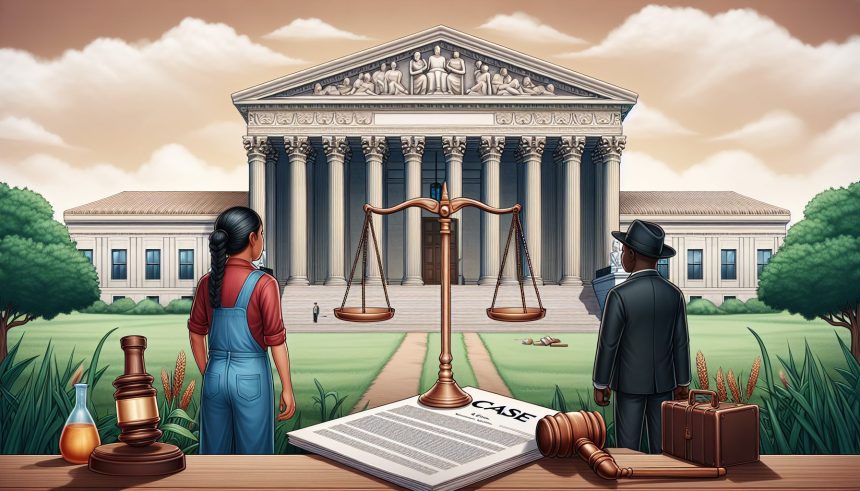The U.S Supreme Court has begun proceedings for the Bissonnette et al. versus various distributors case, confronting issues of employment status and the implications of the Federal Arbitration Act on transport workers.
At the heart of the case is the classification of transport workers as either employees or independent contractors which plays a decisive role in determining their rights and benefits. The court’s judgment could drastically impact workers’ rights and protections, and set legal precedents for future cases of similar nature.
The plaintiffs, Neal Bissonnette and Tyler Wojnarowski, both truck drivers, are accusing the parent company and its subsidiaries of labor law infringements. They allege the companies have denied them just compensation for the services provided.
Challenging the validity of the arbitration agreements they signed with the main company, the plaintiffs claim the agreements were intentionally misleading and exploited their insufficient understanding of the implications. They attest to suffering financial losses due to withheld wages and overtime pay. The defendants, however, deny any wrongdoing, maintaining that the arbitration agreements are binding and legal.
Questioning the section of the Federal Arbitration Act from 1925, the plaintiffs argue that it frustrates their rights to collective bargaining and breaches Federal Labor Relations legislation. They aim to invalidate the arbitration agreements and claim systematic violation of their employment rights.
In May 2020, a ruling by the United States District Court for the District of Connecticut classed Bissonnette and Wojnarowski as business owners rather than employees based on their broader responsibilities. Despite the plaintiffs’ expressed dissatisfaction with the ruling, Bissonnette and Wojnarowski continue to play integral roles in the company.
The case has catalyzed debates surrounding worker categorization, independent contractors, and their rights in contemporary workplaces. This highlights the necessity for statutory definitions of ’employee’ and ’employer’ to adapt to evolving business models.
Meanwhile, Judges Kari Dooley and Anthony Scalia have differing views on whether the plaintiffs are ‘workers’ or ‘business owners’. Chief Justice John Roberts and Justice Ruth Bader Ginsburg have also weighed in on the ongoing ‘worker’ versus ‘business owner’ debate, demonstrating the convoluted and multifaceted nature of the case.







